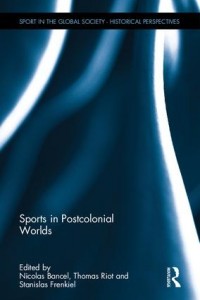Les séminaires de l’ URePSSS
La santé respiratoire du sportif, rôle de l’environnement
Jeudi 02 juin 2016 – Amphi 1
Faculté des sciences du sport et de l’éducation physique
9 rue de l’université 59790 Ronchin, Lille, FRANCE
Jeudi 02 juin 2016 – Amphi 1
Faculté des sciences du sport et de l’éducation physique
9 rue de l’université 59790 Ronchin, Lille, FRANCE
Grosbois JM, Riquier C, Chéhère B, Coquart J, Béhal H, Bart F, Wallaert B, Chenivesse C. Six-minute stepper test: a valid clinical exercise tolerance test for COPD patients. International Journal of COPD 2016;11:657-63
Résumé : L’objectif de cette étude était de mesurer la validité d’un test de stepper de 6 minutes (T6S) pour évaluer la tolérance à l’effort de patients atteints de bronchopneumopathie chronique obstructive (BPCO) lors de programmes d’activités physiques. Le stepper à l’avantage d’être facilement transportable, simple d’utilisation et ne nécessite que peu d’espace, contrairement au test de marche de 6 minutes (T6M) couramment utilisé mais nécessitant l’utilisation d’un couloir d’au minimum 30 mètres de long. 91 patients atteints de BPCO ont réalisé un T6S et un T6M avant et après un programme de réentrainement de 6 semaines. Les performances au T6M et T6S ont été significativement améliorées après les 6 semaines et les améliorations des performances aux deux tests étaient significativement corrélées. Ces résultats confirment la possibilité d’utiliser un T6S pour évaluer la tolérance à l’effort de patients atteints de BPCO, et notamment dans le cadre d’un programme d’activités physiques à domicile où l’espace permet rarement la réalisation d’un T6M.
Facteur d’Impact 3,1
Bancel Nicolas, Riot Thomas et Frenkiel Stanislas, Sports in postcolonial worlds, Routledge, 2016, 148 p.
 Résumé : This book explores several cultural and historical paths intertwined in the genesis and development of sport and physical activities within colonial and postcolonial contexts. As far as youth organizations and Western-based sports are concerned, the Independencies political split needs to be reconsidered, from a cultural perspective with practices overlapping spatial, chronological and epistemological borders. When looking at the variety of practices, the colonial legacies and the ensuing migration journeys through a global perspective, there is a need to understand the diverse ways of composing and building the postcolonial sport worlds. Multiculturalism (South Africa, France, Algeria), transnational journeys (Pacific Islands), rebuilding of national identities through sporting institutions (Ireland, West Africa), racialization of the society (Rwanda, South Africa), gender control (from the West-East to the North-South gap), sportization of traditional/old games (Americas), and so on. Following the various studies shaping this book, the ambivalence of sporting and physical activities’ paths comes up. It is apparent these trajectories have generated a mixed feeling of adhesion and repulsion towards Western hegemonies in postcolonial societies.
Résumé : This book explores several cultural and historical paths intertwined in the genesis and development of sport and physical activities within colonial and postcolonial contexts. As far as youth organizations and Western-based sports are concerned, the Independencies political split needs to be reconsidered, from a cultural perspective with practices overlapping spatial, chronological and epistemological borders. When looking at the variety of practices, the colonial legacies and the ensuing migration journeys through a global perspective, there is a need to understand the diverse ways of composing and building the postcolonial sport worlds. Multiculturalism (South Africa, France, Algeria), transnational journeys (Pacific Islands), rebuilding of national identities through sporting institutions (Ireland, West Africa), racialization of the society (Rwanda, South Africa), gender control (from the West-East to the North-South gap), sportization of traditional/old games (Americas), and so on. Following the various studies shaping this book, the ambivalence of sporting and physical activities’ paths comes up. It is apparent these trajectories have generated a mixed feeling of adhesion and repulsion towards Western hegemonies in postcolonial societies.
Theme by Anders Noren — Up ↑